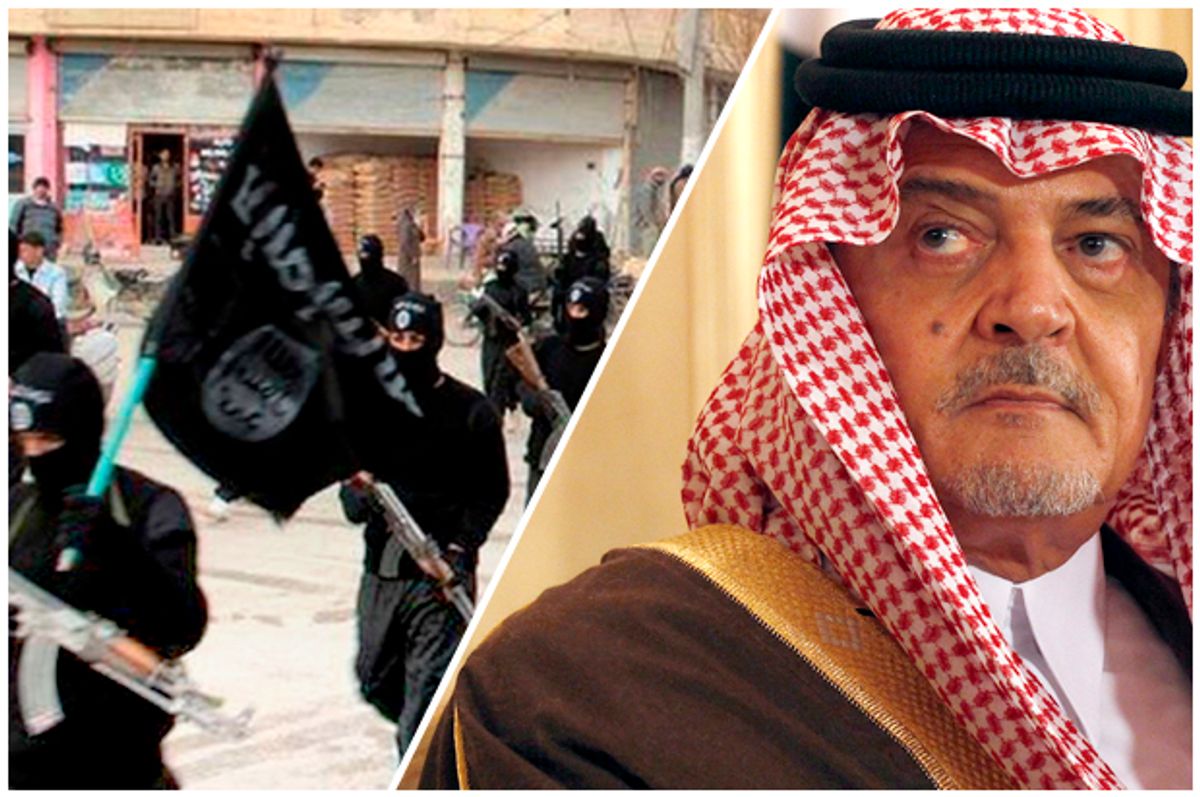Saudi Arabia kicked off the new year with mass executions. The Saudi monarchy beheaded 47 people in one day, across 13 cities, leading politicians, human rights experts, and journalists on social media to compare the close U.S. ally to the extremist group ISIS.
Among those killed was Nimr al-Nimr, a prominent cleric in the Shia minority religious group. Al-Nimr was arrested and tortured for his role leading the peaceful democratic uprising against the western-backed Saudi absolute monarchy in 2011.
Numerous publications, including the leading British newspaper The Guardian, mistakenly referred to al-Nimr as an Iranian cleric. This is false; al-Nimr was Saudi.
Protests erupted across the Middle East Saturday in response to the mass killings. Protesters filled the streets in neighboring Bahrain, condemning the executions, and were met with tear gas and police repression. Bahrain, which has a Shia majority, had its own peaceful uprising against the monarchy in 2011, which was violently crushed by a Saudi invasion, backed by the U.S.
Al-Nimr's brother, Mohammed al-Nimr, publicly insisted that the pro-democracy movement in the Saudi Shia community will continue, the Washington Post reported. "Wrong, misled, and mistaken [are] those who think that the killing will keep us from our rightful demands," he tweeted.
Ali Mohammed al-Nimr, nephew of the prominent Shia cleric, was himself arrested in 2012, at age 17, for attending a peaceful pro-democracy protest. The teen was allegedly tortured, before the Saudi monarchy ordered him to be beheaded and crucified. It is unclear whether he was included in the group of 47 people killed.
Two other peaceful pro-democracy activists who were arrested when they were teens were also set to be executed by the Saudi monarchy.
In November, Saudi Arabia sentenced a Palestinian poet to death for renouncing Islam and criticizing the Saudi royal family.
Saudi Arabia is one of the most repressive regimes on the planet. It is an authoritarian, theocratic monarchy that bases its laws on an extreme interpretation of Sharia (Islamic law). Its Wahhabi (Sunni extremist) ideology and frequent use of beheadings have led it to be compared to ISIS. Algerian journalist Kamel Daoud described Saudi Arabia as "an ISIS that has made it" in a November op-ed in The New York Times.
Comparisons of the Saudi monarchy to ISIS flooded social media in response to the mass killings, alongside accusations of western hypocrisy and double standards.
The Saudi monarchy executes hundreds of people a year. In 2015, it executed 158 people, largely by beheading. Every four days, Saudi Arabia executes someone for drugs, even while its princes are caught with tons of drugs at the airport.
Scholars have described Saudi Arabia as "the fountainhead" of Sunni Islamic radicalism. Former U.S. Sen. Bob Graham called extremist groups like ISIS and al-Qaeda "a product of Saudi ideals, Saudi money, and Saudi organizational support." U.S. government cables leaked by WikiLeaks show officials like Hillary Clinton admitting that al-Qaeda and other Salafi groups are supported by Saudi businessmen and members of the royal family.
Despite its brutality and support for violent extremist groups, the U.S. considers Saudi Arabia a "close ally." In September, the State Department said it "welcomed" the news that the Saudi regime would head a U.N. human rights panel, noting "We're close allies."
The State Department also refers to the Saudi monarchy as "a strong partner in regional security and counterterrorism efforts, providing military, diplomatic, and financial cooperation."
President Obama's administration has done more than $100 billion in arms deals with the Saudi regime in the past five years.
Saudi Arabia has been a close U.S. ally since the early 20th century, when it was discovered to have what were believed to be the world's largest oil reserves (the largest oil reserves are now known to be in Venezuela, but Saudi Arabia comes in a close second). In 1945, just before he died, President Franklin Delano Roosevelt famously met with Ibn Saud, the first king and founder of Saudi Arabia, and promised the absolute monarch the U.S. would support his regime in return for oil.

Shares